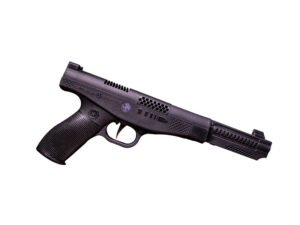Air guns have gained popularity in India over the years, both as tools for recreational shooting and as means of pest control. However, the legality of air guns in India can often be confusing. This article aims to provide a comprehensive overview of the legal status of air guns in India, helping enthusiasts and potential buyers understand the rules and regulations surrounding their use.
Understanding Air Guns
Before diving into the legality of air guns, it’s essential to understand what an air gun is. Air guns are firearms that use compressed air or gas to propel projectiles, typically BBs or pellets. They are classified into different categories based on their operating mechanisms:
- Spring-Piston Air Guns: These guns use a spring mechanism to compress air and propel the projectile.
- Pneumatic Air Guns: These guns rely on compressed air or gas (like CO2) to shoot projectiles.
- Pre-Charged Pneumatic (PCP) Air Guns: These sophisticated guns use a pre-charged air system for higher accuracy and power.
Legal Status of Air Guns in India
In India, the legality of air guns is governed by various laws and regulations. The primary legislation concerning firearms is the Arms Act of 1959. According to this act, air guns are categorized as firearms but are subject to different rules than traditional firearms. Here’s a detailed look at the legal status of air guns in India:
1. Classification of Air Guns
The Arms Act classifies firearms into three categories based on their caliber and mechanism. Air guns with a muzzle energy of less than 20 joules (approximately 15 foot-pounds) are generally classified as “non-firearms” and do not require a license. This means that individuals can purchase, own, and use air guns falling under this energy limit without the need for any special permits.
2. Licensing Requirements
Air guns that exceed the 20 joules limit fall under the category of licensed firearms. Individuals intending to purchase, possess, or use these air guns must obtain a license from the appropriate authorities. The process for obtaining a firearms license in India can be lengthy and involves background checks, interviews, and various paperwork.
3. State-Specific Regulations
While the Arms Act provides a general framework for air gun legality, individual states in India may have their own rules and regulations. Some states may impose stricter regulations or require registration even for lower-powered air guns. Therefore, it is crucial for individuals to check the specific laws applicable in their state before purchasing or using an air gun.
4. Usage of Air Guns
The use of air guns is generally permitted for recreational shooting, training, and pest control, provided the air gun complies with the legal requirements. However, it’s important to note that discharging an air gun in public places or areas where it can cause harm to people or property is illegal. Responsible use is essential to ensure safety and compliance with local laws.
Conclusion
In conclusion, air guns can be legal in India, depending on their specifications and the compliance with the relevant laws and regulations. Air guns with a muzzle energy of less than 20 joules do not require a license, making them more accessible to the general public. However, higher-powered air guns fall under the category of licensed firearms, necessitating proper registration and adherence to state-specific regulations.

